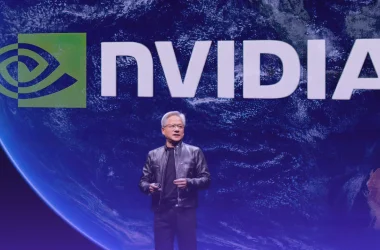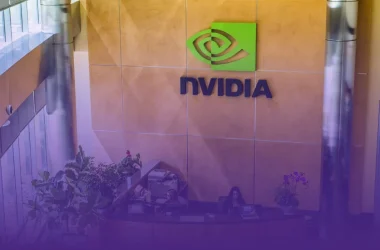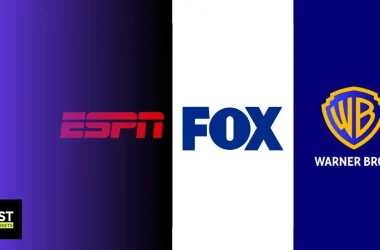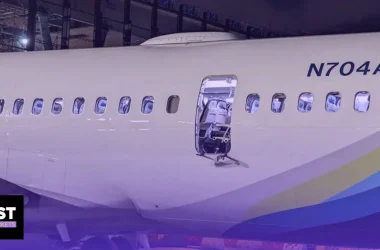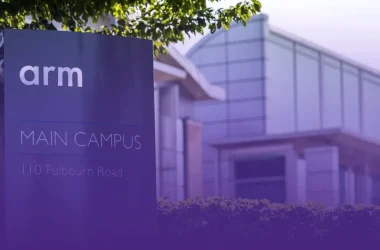JetBlue Airways (NASDAQ: JBLU) and Spirit Airlines (NYSE: SAVE) caught the market’s attention when they announced plans to mutually terminate their $3.8 billion merger agreement. After the announcement, JBLU stock was 4.3% higher, while SAVE stock fell by 11%. But, this decision wasn’t too shocking for many investors, especially since it came weeks after a federal judge ruled that the $3.8 billion deal would reduce competition and harm cost-conscious travelers.
Still, some thought it was a surprise move from the two airlines because they had previously announced plans to pursue an appeal with a hearing in June, and many are now wondering what caused the companies to abandon these plans, and what’s next for them after this merger’s termination.
The Deal’s Background
The merger was announced way back in July of 2022. During that time, Spirit received an acquisition offer from fellow discount-airline Frontier Airlines (NASDAQ: ULCC), and it had actually wanted to stick to its plan to merge with Frontier, but JetBlue fought for Spirit really hard because it wanted to gain control of Spirit’s jets and pilots, and launched a hostile bidding war that drove the deal price higher and that was successful in winning over Spirit investors. The merger quickly came under antitrust scrutiny, because Spirit and JetBlue joining forces would’ve created the fifth-largest carrier in the United States, though it’d still be significantly smaller than the “big four” of the airline industry: United (NASDAQ: UAL), American (NASDAQ: AAL), Delta (NYSE: DAL), and Southwest (NYSE: LUV), which account for 80% of the domestic market.
This argument wasn’t enough to sway the regulators’ opinions, mainly because they didn’t think the many consolidations in the airline industry, which increased rapidly in the early 2000s, benefited consumers. In addition to that, the regulators argued that because Spirit is known for being an ultra-discount airline, the deal would eliminate a low-cost option for travelers who had come to rely on Spirit’s cheap fares, so it’d end up harming consumers.
But, Spirit’s CEO, Ted Christie, disagrees with this. He said in the company’s latest earnings call that this scrutiny from the government forces small airlines to compete on an uneven playing field, and even claimed that the government is basically letting a handful of large players control the market, while smaller competitors, and the American consumer, struggled. Whether that’s the case or not, the deal was still blocked, and when the two airlines appealed the cancellation ruling, some analysts said overturning it would probably be a long shot, and rightfully predicted that it won’t go through.
The Termination
What was surprising, though, is that the decision came from the airlines. JetBlue and Spirit said that they had come to the decision after they realized that they probably couldn’t overcome the regulatory hurdles before the July deadline they set for the acquisition, while the newly appointed CEO of JetBlue, Joanna Geraghty, told employees that the federal court ruling and the DOJ’s continued opposition made the probability of the airlines winning anytime soon extremely low. On the other hand, Christie also said the airlines agreed that regulatory obstacles would likely be too great to be overcome so they decided to cancel the deal, and that’s how the nearly two-year saga came to an end.
This isn’t the first time the Justice Department put an end to one of JetBlue’s plans, as its aggressive antitrust regulations have successfully blocked American Airlines’ Northeast partnership with JetBlue last year. American Airlines is currently in the process of appealing this decision, while JetBlue sat that appeal out as it pursued its merger with Spirit. After it was announced that the JetBlue and Spirit merger fell through, the CEO of American Airlines, Robert Isom, said that the company would consider rekindling ties with JetBlue if circumstances allowed. Back to the Spirit merger, as a result of the deal being terminated, JetBlue agreed to pay Spirit $69 million in cash to cover costs like attorneys fees and prepayments it would still owe Spirit investors under the terms of the deal. Before that, JetBlue has already paid Spirit shareholders $425 million, so this new payment pushes the total payments to $494 million.
What’s Next for the Two Airlines?
Now, the two companies will have to figure out how to navigate uncertain futures on their own. Both of them have been losing millions for years and have faced tough competition on domestic routes, accompanied with rising costs for fuel and labor. Not only that, but they have had to ground planes for inspections because of a Pratt & Whitney engine recall, a problem that has hit Spirit especially hard. In response to all of this, Geraghty has promised aggressive action to get JetBlue back on track, and said that the company’s turnaround plans were underway with steps to boost revenue and cut costs. As for Spirit, the company’s financial outlook deteriorated rapidly over the course of last year, and attorneys even debated whether it has a viable model at the trials.
Now that this merger is blocked, some analysts are predicting that Spirit might need to file for bankruptcy or liquidate very soon because it has $1.1 billion in debt due in September of 2025, with no means of paying it back. But, Christie said in the latest earnings call that this was a “misguided narrative” and that the company had enough liquidity to survive and was also exploring ways to refinance its debt. The bottom line was that the company remains confident in its future as a “successful independent airline.”
Not many people agree, and think refinancing the debts will be very hard for Spirit, and the only thing that can really save it is another acquisition. But, it’s unclear whether Frontier, which is currently making changes to its strategy in response to some of the same challenges in the airline industry in recent months, would revive its bid for Spirit. In fact, Bill Franke, Frontier’s chairman and whose private-equity firm is its largest investor, declined to comment when asked about it by the Wall Street Journal. Additionally, when he was asked about it during an earnings call, he said that Frontier is now completely focused on itself, which many took as a sign that Frontier won’t try to acquire Spirit again.
JBLU Stock Forecast
JetBlue arguably has less to lose than Spirit after the deal was canceled, because the economy has shifted a lot since the deal was first announced, and airlines are now showing signs of weakening demand, and that’s exactly why JBLU stock is up after the deal was canceled, because investors thought the last thing an airline needs heading into an industry slowdown is more capacity and a complex integration, and JetBlue quickly shifted its strategy to reduce these two. There’s also the fact that JBLU stock is currently supported by investors coming in after it was announced that activist investor Carl Icahn acquired a 9.91% stake in the company, as well as two seats on its board, with some even speculating that he might’ve swayed the company’s decision to end the merger somehow.
Another good thing about JBLU stock is the company’s decision to expand East with the aim of becoming America’s first low cost transatlantic carrier, and even though competition in the European market is incredibly hard, JetBlue already experienced with trips to Amsterdam, London and Paris, which has helped them drive record profits, so it has a legit chance of becoming a leading airline in Europe, especially since it’s a lot more affordable compared to the big four.
SAVE Stock Forecast
SAVE stock, on the other hand, is down because a lot of the airline’s valuation was tied to the price JetBlue was willing to pay for it. Without a buyer, Spirit and SAVE stock face the hard task of surviving a potential recession in the airline industry on its own. If Frontier chooses to return with another offer, maybe regulators will give this deal a chance, since Frontier also operates as an ultra-low-cost carrier, so merging with Spirit won’t eliminate one of the few cheap airlines out there, which was the regulators’ main concern. Still, with how the airline industry is right now, we can’t expect any big acquisitions to be announced soon, so Spirit will have to figure something out as the clock starts ticking for its massive debt due in 2025.
To sum up, Spirit is highly indebted, as its short-term debt stands at $315 million while its current portion of lease obligations are over $225 million. It has over $3 billion in long-term debt, which is much higher than its total equity of over $700 million. And not only is it indebted, it’s also losing substantial sums of money even as demand resumes. In fact, it had a net loss of $183.7 million in the last quarter, and lost over $700 million in the last five quarters.
Unlike other airlines, Spirit revenue in the last quarter dropped by 5% to $1.32 billion. Therefore, it’s no surprise that analysts don’t expect Spirit Airlines to see strong profitability growth anytime soon. In fact, they expect that the company will lose $2.67 per share of SAVE stock and $1.42 in 2024 and 2025, respectively. On the positive side, the company does not have any meaningful maturities for 2024 and has over $1.3 billion in available liquidity. Also, Spirit was a highly profitable company before the pandemic, meaning that it might be able to get itself back on track since fundamentals have not changed dramatically.
The Bottom Line
The key takeaway from the situation for investors is that JBLU stock is probably the more conservative and safer play, while SAVE stock has more risk as there aren’t a lot of reasons to be bullish on SAVE stock. Both JBLU stock and SAVE stock should be approached with caution by investors, but they could both recover as the domestic flights sector improves thanks to the airlines stopping their focus on the merger.
If the two companies improve their operations by increasing profitability and reducing costs, then JBLU stock and SAVE stock could see a rally. Both JBLU stock and SAVE stock have traded in the $15 to $20 range pre-Covid with further upside potential.
Disclaimer
Please visit and read our disclaimer here.


